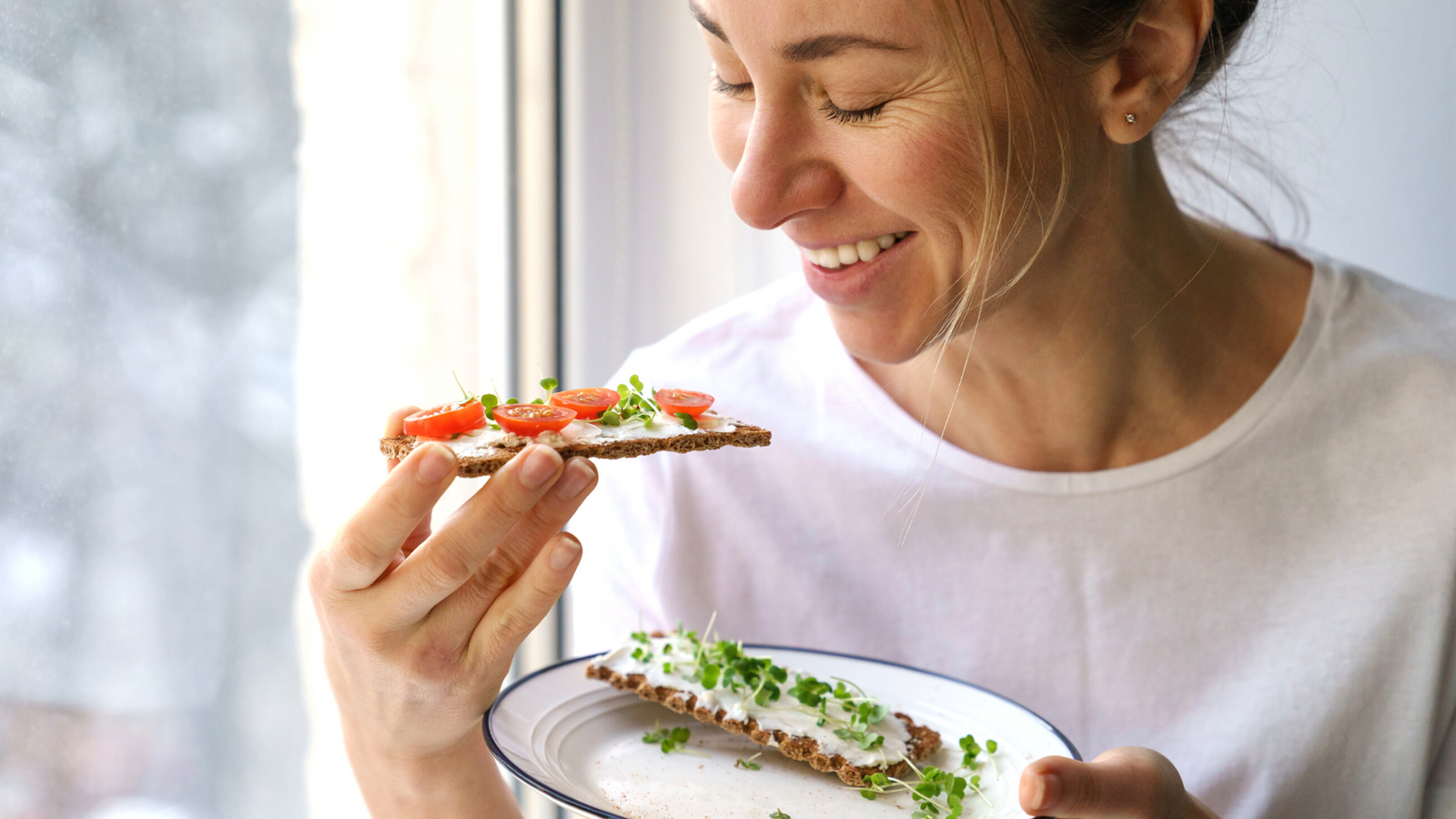Your Cart is Empty
Free shipping on Orders $79+
Free shipping on Orders $79+
Explore

The Self-Care Diet: Your Complete Guide To Intuitive Eating
February 12, 2023 4 min read
If you’re interested in living a healthy lifestyle, you’ve probably come across the intuitive eating framework. It’s a controversial, yet highly successful approach to dieting that was created back in the 90’s by 2 American dietitians.
Intuitive eating is about building a healthy relationship with food. It teaches you how to listen, understand and interpret your internal cues, rather than go against them.
It’s also linked to creating and sustaining a positive body image by encouraging you to define what “healthy” means to YOU.
As you can probably already tell, intuitive eating is pretty much the opposite of every restrictive diet out there. It’s a completely different approach to health, weight management, and wellness. And we’re here for it.
What Are The Benefits Of Intuitive Eating?
The first thing you need to know about intuitive eating is thatit’s not about weight loss. This is an anti-diet created to help us live healthier and happier without micromanaging our eating patterns.
Intuitive eating has been shown to have a number of benefits for physical and mental health. Here are a few of the biggest benefits, based on studies:
- You get healthier: Intuitive eating has been linked to better markers of physical health, such as lower body mass index (BMI) and lower cholesterol levels. For example, a study published in the Journal of the Academy of Nutrition and Dietetics found that people who practiced intuitive eating had lower BMIs and lower cholesterol levels compared to those who followed a diet.
- You feel less depressed and/or anxious: Intuitive eating has been shown to have a positive impact on mental health, including reduced symptoms of depression, anxiety, and disordered eating behaviors. A study published in the International Journal of Eating Disorders found that people who practiced intuitive eating had lower levels of depression and anxiety compared to those who followed a diet.
- You start loving your body: Intuitive eating has been linked to improved body satisfaction and a positive body image. A study published in the Journal of Counseling Psychology found that people who practiced intuitive eating had higher levels of body satisfaction compared to those who followed a diet.
-
You feel happier:: Intuitive eating has been shown to improve overall well-being and quality of life. A study published in the Journal of Nutrition Education and Behavior found that people who practiced intuitive eating had higher levels of life satisfaction and a better quality of life compared to those who followed a diet.
How To Get Started With Intuitive Eating
Intuitive eating helps you reconnect with your body. You learn to identify your hunger and fullness cues. You also learn to cut through the confusion of diet culture and discover the best way to nourish your body.
Intuitive eating is NOT about eating cake and cookies all day. It’s about listening to your body’s inner wisdom. Once you do, you will simply make healthier choices for yourself intuitively, without punishing yourself with starvation diets.
Is Intuitive Eating For You?
If you’ve been harmed by the toxic messaging promoted by society around diet, weight loss, body image, and health… then yes, intuitive eating might feel like a breath of fresh air for you.
Maybe you want to take care of yourself, but you don’t want to feel like you’re punishing yourself any longer with restrictive diets and starvation.
Maybe you’re tired of micromanaging your food, counting calories, and feeling guilty when you taste something you enjoy.
If you can relate to any this, perhaps it’s time to let go of diet fads and embrace intuitive eating as a lifestyle.
Can Smart Pressed Juices Help With Intuitive Eating?
Our juices can be a part of an intuitive eating frameworkas long as they are not used to restrict food or replace meals.
So if you’d like to try intuitive eating, we would recommend using them daily as a supplement, rather than undergoing a juice cleanse. If you choose to consume them regularly, the nutrients will help sustain or even improve your health as part of a balanced diet!
References:
Bacon, L., Stern, J. S., Van Loan, M. D., & Keim, N. L. (2005). Size acceptance and intuitive eating improve health for obese, female chronic dieters. Journal of the Academy of Nutrition and Dietetics, 105(6), 929-936.
Tribole, E., & Resch, E. (1995). Intuitive eating: A revolutionary program that works. St. Martin's Griffin.
Tylka, T. L., & Kroeger, C. A. (2007). Development and psychometric evaluation of a measure of intuitive eating. Journal of Counseling Psychology, 54(2), 290.
{"themeColor":"#574CD5","iconColor":"#574CD5","showLogo":true,"topBottomPosition":10,"rightLeftPosition":10,"iconSize":"small","iconCustomSize":64,"position":"bottom-left"}

